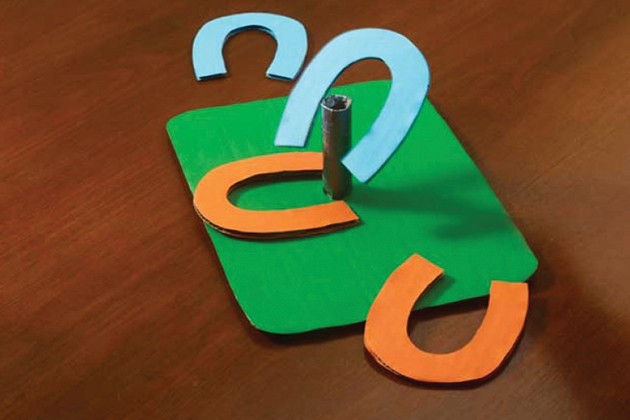7 Family Games to Play Anywhere
By: Highlights Editorial
Remember those fun, informal family games that parents and kids have enjoyed for generations—no batteries or equipment required? Here’s a refresher course in the classics, which you can adapt to your own family. The bonus: They help boost language, memory and other learning skills. (But you don’t have to tell the kids they’re educational.)
1. 20 Questions
One player thinks of an object, letting the others know only whether it is animal, vegetable or mineral. Then the other players ask questions that can be answered only with yes or no.
For instance, if the object is a car (mostly mineral), the players will ask, “Is it bigger than a laptop computer?” or “Can it move?” The object: Guess the answer in fewer than 20 questions.
2. Geography
Each player comes up with a place name (town, state, country, etc.) that begins with the same letter as the last letter of the place the previous player mentioned.
Example: Player 1 says Spain. Player 2 must name a place that begins with an N, such as New York, which ends in K. Player 3 then mentions Kansas. Keep going for as long as you can name a new place.
For more geography fun, your kids can go on an adventure with our Which Way USA Book Club. They can travel across the United States, visiting the most popular and interesting places, right from home!
3. Botticelli
Each player takes on the persona of a well-known person and offers only that person’s initials as a clue. The questioners try to guess the identity of the person by asking specific questions that can be answered with only yes or no.
The first questions may be general, such as “Are you alive today?” The player, answering in character as George Washington, for instance, may say, “No, I’m not alive today,” without offering any other information. The next questions continue to zero in on the identity until a player correctly guesses the mystery person.
Botticelli is a great game for older kids who are familiar with people in the news and historical figures. It can be made more difficult by using just a last or first initial.
4. Categories
One player states a “category,” and the other players take turns naming items that belong in that group. The category can be as broad as “animals,” or as narrow as “types of dogs.”
Traditionally, a clapping rhythm keeps up the pace, so players won’t take forever to come up with a response. The category chosen determines how difficult or easy the game is. The game continues until players run out of ideas for the category.
5. Ghost
One player names a letter of the alphabet. Each player takes a turn adding a letter that contributes to the spelling of a word each has in mind. A player can be challenged if another player suspects the letter just added isn’t part of a real word.
The catch: Players must avoid completing a word. Each time a player completes a word, they gets another of the letters in the word ghost. Once a player has all five letters, they’re out of the game. But that person can then help, or haunt, other players.
Example: Player 1 starts with the letter B. Player 2 adds A. Player 3 adds L, having in mind the word balance. Player 4, thinking about the word balloon, adds another L, forgetting that it completes the word ball. The fourth player, having inadvertently spelled a word, would get a G for ghost, but stay in the game.
6. I Packed My Grandmother’s Trunk
Each player starts off with the same sentence: “I packed my grandmother’s trunk and in it I put ___.” The player completes the sentence with a word that begins with the letter A. For instance, “I packed my grandmother’s trunk and in it I put an alligator.”
The next player repeats the previous sentence and must add a B word. “I packed my grandmother’s trunk and in it I put an alligator and a banana.” In turn, each player must remember what the past players have said and add an item that starts with the next letter of the alphabet.
7. Charades
Players divide into two teams and each member writes a phrase on a slip of paper, folds it up and places it in their team’s bowl. A player picks a paper from the opposing team’s bowl and acts out individual words, syllables and other hints to depict the phrase.
This pantomime play hones communication skills as each player provides nonverbal clues to help teammates guess the right phrase within an agreed-upon time limit. The game has some formal conventions—for instance, gestures that describe what type of phrase is being guessed, such as making quote marks with your fingers for a quotation or placing hands together then opening them to signal a book title. But you can adapt the format in many ways.
Unlike the other games here, charades can’t be played in the car, but it’s a great party game once you get to your destination!









